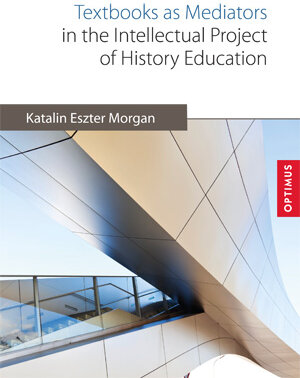
(by Julia Pfrötschner - OPTIMUS newsroom) It is widely accepted that shaping the future relies to some extent on controlling how the past is presented. George Orwell, in his novel 1984, put it in the words: „Who controls the past, controls the future“. This notion is especially true in the context of history education. The presentation and mediation of history is always based on the interpretation of certain institutions and individuals. An important medium in the process of mediation in schools is the textbook. Katalin Eszter Morgan’s (née Fenyves) dissertation „Textbooks as mediators in the intellectual project of history education“ covers this specific topic and examines the transfer of knowledge in South African history education. Her study takes ten history textbooks, officially approved for the South African high school curriculum, into account and analyses how certain topics and historical events like NS-Germany and pseudoscientific racism are presented. According to the media used in school education the situation in South Africa is different from more developed countries, because many teachers have no access to any other sources of subject knowledge than textbooks. Therefore, in South Africa textbooks are the most important media in current history. The primary aim of Katalin Morgan’s work was to design a tool for the analysis of content and its presentation in high school history textbooks. How such a tool could be put to use, is another aspect approached in her dissertation. In 2012, even before her dissertation was published, Katalin Morgan obtained the Georg-Eckert-Prize for “excellence in international educational media research”. The selection panel – represented by Prof. Dr. Simone Lässig, the director of the Georg-Eckert-Institute in Braunschweig, Germany – commends the combination of theoretical approaches and practical proceeding in her work. Linking theory to practice in the way Katalin Morgan has done is rarely seen in social sciences and humanities. Her book makes not only a great contribution to international educational media research, it also gives suggestions for the conception and revision of textbooks as well. Katalin Eszter Morgan (neé Fenyves) was born in 1970 in Budapest, Hungary. She grew up partly in Germany and moved to South Africa with her parents as a teenager in 1983. After completing an M. A. in sociology she worked as a researcher for a non-governmental organisation, and then later as a high school teacher for several years. She obtained a Ph. D. in Education from the University of Johannesburg in 2011. Since 2012 she is a lecturer in curriculum studies at the humanities faculty of the University of the Witwatersrand in Johannesburg. Katalin Morgan is the holder of the 2012 Georg-Eckert-Prize for “excellence in international educational media research”.
How can a tool for analysing history textbooks be developed from sociocultural theory? How can such a tool be applied to a sample of ten grade 11 South African history textbook chapters, which deal with the history of race and racism in the late nineteenth and early twentieth centuries? This volume explores the theoretical development and practical application of a five-dimensional model for history textbook analysis. It draws on interdisciplinary concepts such as higher order mental functions, empathy, author positioning, narratives, and visual grammar for text design. Many of these concepts echo some of the underlying principles of the history curriculum. The analysis shows that despite a common curriculum, textbook chapters adopted very different approaches to the topic studied. Many of the textbook chapters positioned their envisaged textual community towards citizenship education rather than pursuing history as a process of discovery. The strong theoretical approach to history textbook analysis implies that the model could be adapted to other contexts, content areas, and educational media within or possibly even beyond the discipline of history.







